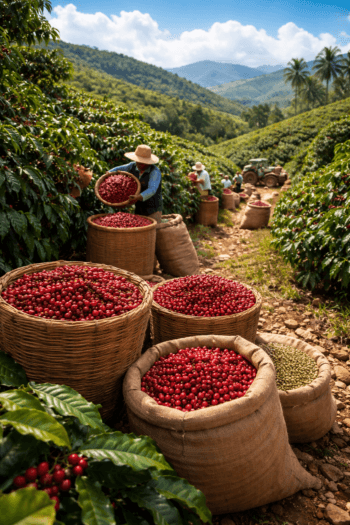Starting January 1, 2025, Russia will implement increased import duties on goods imported from countries deemed unfriendly. The updated list includes roasted and instant coffee, meat and fish products, confectionery, pasta, sauces, non-alcoholic beverages, and other processed foods. The duty increase on coffee is particularly significant, with rates rising from the current 8% and 7.5% to 13% and 17.5%, respectively, which could substantially affect coffee prices in Russian stores.
Among other categories, beer and cider see the most dramatic changes, with import duties increasing from a symbolic €0.1 to €1 per liter—a tenfold rise. Additionally, canned vegetables, fruits, nuts, perfumery and cosmetic products, and household chemicals are also subject to higher duties. On average, duty rates will increase by 10 percentage points, reaching between 20% and 50%, depending on the product category.
The Russian Ministry of Economic Development stated that this decision was made as part of a systematic response to sanctions imposed on Russia. The increased duties aim to encourage import substitution, attract investment, and stimulate the development of domestic production. Ministry officials emphasized that imports from friendly and neutral countries would continue under standard tariffs, ensuring market competition and a wide range of products.
Higher import duties were first introduced under Government Resolution No. 2240 in 2022. Initially, the list included weapons, perfumery, wine, beer, and construction materials. Over time, the list expanded to include batteries and confectionery. In December 2024, the resolution was extended until the end of 2025, with additional products added to the list of goods subject to increased duties.
The decision to increase coffee duties is particularly significant for the Russian market. While coffee is not grown domestically, the country has significant potential to develop local roasting and processing industries. In recent years, the number of specialized coffee roasting facilities has grown, creating opportunities for high-quality production. However, the sector remains dependent on imported raw materials from countries like Brazil, Vietnam, and Colombia.
Experts note that the impact of the new duties on coffee prices will largely depend on global price trends. In recent years, coffee bean prices have shown significant fluctuations, already affecting beverage costs. If global prices decrease, retailers may offset the increased duties with more favorable procurement costs. However, if raw material prices remain high or rise further, an increase in coffee prices in Russia will be inevitable, especially for premium varieties.
The higher duties raise questions about whether Russian businesses can effectively substitute imports and create competitive products. The successful development of local brands and high-quality coffee production could help minimize the impact on consumers. At the same time, the sharp rise in the cost of imported goods, particularly in the premium segment, may present new challenges for both retailers and consumers. While the government’s decision aims to support the domestic market, it represents a critical test for the Russian economy as a whole.

